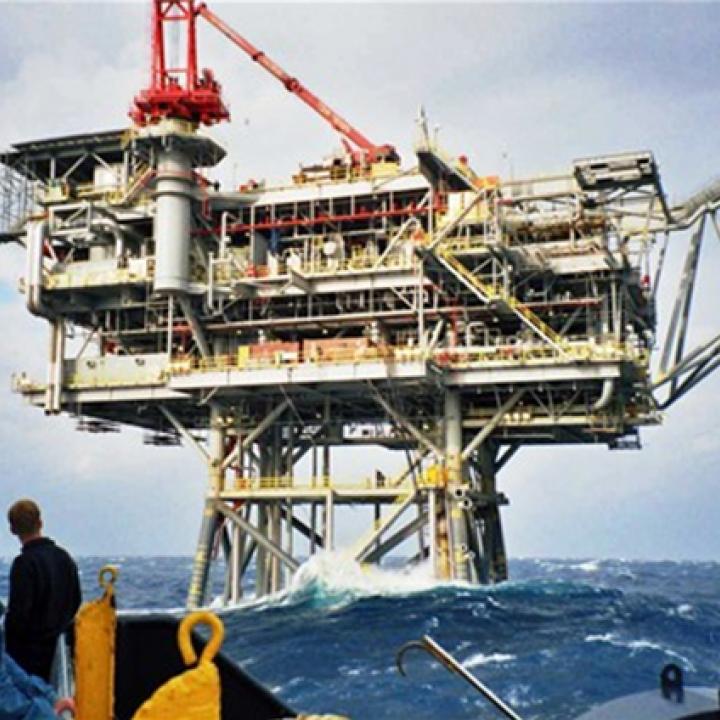

While Prime Minister Netanyahu will be focusing on Iran during his planned visit to Washington next week, Israel's regulatory interference in the exploitation of gas reserves will likely intrude on the agenda.
The development of Israel's offshore natural gas fields is being delayed again and may eventually end up in legal action, a process that could take years and effectively suspend development until the matter is resolved. On February 24, Israeli antitrust commissioner David Gilo announced that he was delaying a decision on whether to declare the fields' current ownership situation a monopoly. Although the delay could serve as a timeout on an increasingly vexatious debate, it offers no sure prospect that the government will resolve the dispute, which first erupted in late December when the commissioner announced he was reversing his stance on an outline deal.
The monopoly issue has arisen because almost all of the offshore discoveries have been found by one consortium: the Texas company Noble Energy in partnership with the Israeli conglomerate Delek and its various subsidiaries and partners. So far, this group has spent $6 billion to find and develop gas in the already-producing Tamar field, the even bigger but so far unexploited Leviathan field, and other smaller finds. The initial deal with the Israeli Antitrust Authority involved selling off two of the small unexploited fields, but in the past two months Israeli officials have been proposing a more complicated restructuring with the intended aim of introducing greater competition and, they hope, lower prices. Fixing prices for the next five years has also been suggested.
Economically, it is debatable to what extent market forces can be introduced into such a small domestic market with so few producers (Noble and Delek) and so few consumers (the Israel Electric Corporation and a handful of private power companies). And in political terms, Israeli politicians are siding with the public preference for cheaper electricity, framing the debate in terms of break-even prices and so-called "fair profit margins." Meanwhile, Noble has pointed out that it is hard to invest in a climate where regulations are continually changing, especially since its shareholders prioritize return on investment in deciding where the company should concentrate its activities. Such considerations also affect other companies that Israel may want to invest in its gas sector.
Before the December announcement, Noble and its partners were trying to raise an additional $6 billion needed to exploit the Leviathan field, and prospective customers included Jordan and the Palestinian Authority, both of which signed letters of intent. Plans to export gas from the Tamar field to Egypt have been discussed as well. Yet on February 19, the company announced that "Further investments in the expansion of Tamar, as well as the initial development of Leviathan, have been suspended until regulatory issues are resolved."
Whether and when the parties will reach an agreement is a guessing game at this point. The antitrust commissioner has declared that Noble/Delek must reach a deal acceptable to Israeli authorities by April 23 or he will charge them with restraint of trade. Given the March 17 national elections and the time likely needed to form a new coalition government, this deadline seems tight. Meanwhile, Noble will also need to reengage its prospective customers who are watching with concern on the sidelines, and retain prospective financial arrangements for the Leviathan investment -- no small task when energy prices have weakened in recent months.
Over the past several years, Israel's natural gas riches and potential prospects have been a prime topic of discussion at the annual AIPAC conference, where Netanyahu is due to speak on March 2. Whether then or during his visit to Congress the next day, he will almost certainly hear concerns about the gas investment climate and the need to ensure that Israel provides a warmer welcome to foreign investors.
Simon Henderson is the Baker Fellow and director of the Gulf and Energy Policy Program at The Washington Institute. This article was made possible in part by support from the Irwin Levy Family Program on the U.S.-Israel Strategic Relationship.



